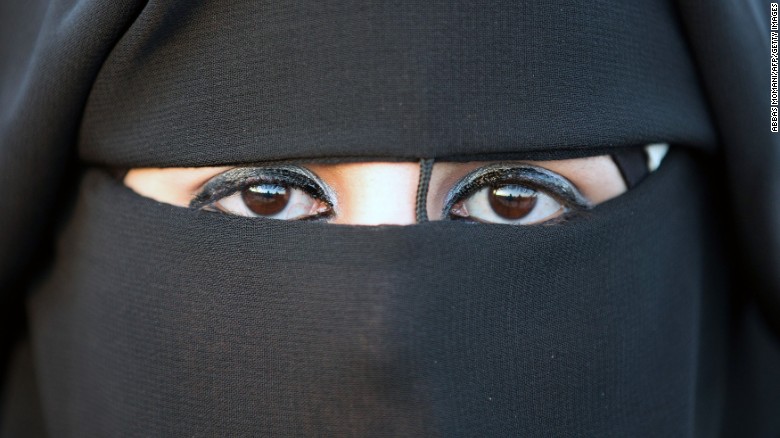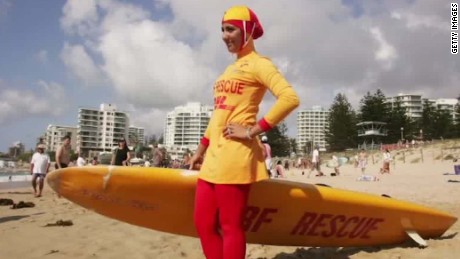Story highlights
- German officials say full-face veil "does not fit into our society"
- Would follow similar bans in France, Belgium and Switzerland
(CNN)Germany could become the next European country to ban face veils under a proposal announced on Friday by officials in the ruling coalition.
The officials intend to have the face veils banned in public places where identification is required -- such as registry offices, schools, kindergartens and government offices -- saying that they did not fit in with Germany's society.
"Full-face veils, as mentioned, we reject this. Not just the burka, any full-face veils that only shows eyes of a person," said Interior Minister Thomas de Maiziere at a press conference held by members of the Christian Democratic Union and their allied Christian Social Union, which govern in a coalition.
"It does not fit into our society for us, for our communication, for our cohesion in the society.... This is why we demand you show your face."
The proposed partial ban is to promote security and national cohesion, de Maiziere said, denying that plans for the ban were to appease the increasingly popular right-wing AFD party.
"We do what we deem is right, and the AFD can behave in their own way," he said.
Berlin Interior Minister Frank Henkel supported the proposal, adding that the full-face veil "does not fit in with our understanding of a tolerant, free society. It does not fit in with our view of women."
De Maziere also said that Germany would mull stricter child marriage laws and that the justice minister was already looking into the issue, adding that "a child marriage is not accepted in Germany."
Burkini ban
The proposal follows a series of bans on clothing deemed religious -- including burkinis -- at some French beaches.
Cannes, a city on the French Riviera famous for its annual film festival, banned the religious swimwear in the wake of recent terror attacks in France and other western European countries.
Those breaking the temporary ban, which runs from July 28 until August 31, face fines of €38 ($42), said the Cannes mayor's office.
The French beach ban also comes as a planned burkini-only day for Muslim women at a water park near Marseille was canceled by city officials, after threats were sent to the event's organizers.
The private event, organized by the women's community group Smile 13, sparked outrage among some politicians and French citizens who claimed it was an affront to France's rigorously enforced secularism.
French precedent
Germany's proposal follows similar bans in France, Belgium and Switzerland.
In April 2011, France became the first European country to ban wearing in public the burqa, a full-body covering that includes mesh over the face, and the niqab, a full-face veil with an opening for the eyes.
Those breaking the law face fines of 150 euros (about $205) or public service duties.
The law was upheld by the European Convention on Human Rights in 2014 after a 24-year-old woman brought the case to court, claiming it infringed on her religious freedom.
The government also previously banned Muslim headscarves and other "conspicuous" religious symbols in French schools, in February 2004.
The laws have been criticized by religious freedom advocates but supported by others who see the Islamic veil as demeaning to women and inconsistent with France's rigorously enforced secularism.









